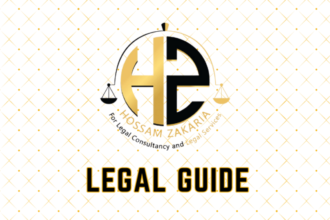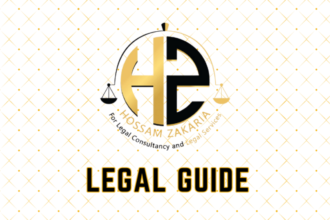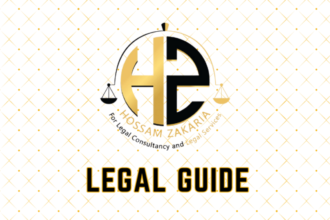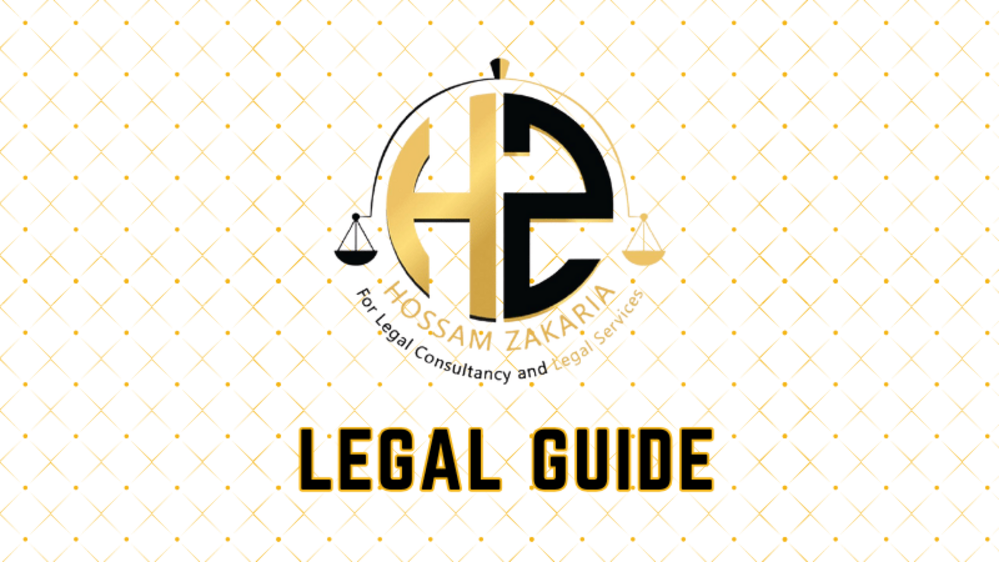Introduction
As the landscape of Islamic finance continues to evolve across the Gulf Cooperation Council (GCC), businesses and professionals in the United Arab Emirates (UAE) increasingly engage with Saudi counterparts in cross-border banking and commercial transactions. Islamic banking contracts, governed by Shariah principles and national legislation such as the Saudi Banking Control Law and relevant resolutions of the Saudi Arabian Monetary Authority (SAMA), are growing in complexity and prevalence. Recent years have witnessed pivotal regulatory updates that directly impact how disputes arising from Islamic banking contracts are resolved in Saudi Arabia. For UAE-based businesses, legal practitioners, and executives, understanding the mechanisms and risks associated with dispute resolution in this context has become critical for legal compliance, commercial certainty, and risk mitigation, particularly as regulatory convergence between UAE and Saudi Arabia accelerates. This article offers an authoritative, consultancy-grade analysis of Saudi dispute resolution mechanisms for Islamic banking contracts, practical guidance for UAE entities, and actionable compliance strategies in light of 2025 legal developments.
This guide draws on verified sources, including the UAE Ministry of Justice, the Federal Legal Gazette, and SAMA directives. It aims to equip businesses and professionals with the knowledge to proactively manage legal risk, foster robust contractual relationships, and ensure continuing alignment with both Shariah and national law in Saudi Arabia.
Table of Contents
- Understanding the Legal and Regulatory Framework
- Key Provisions Relating to Dispute Resolution Under Saudi Law
- Recent Updates and Their Practical Impact (2023–2025)
- Application and Implications for UAE Businesses
- Compliance Strategies and Best Practices
- Case Studies and Hypothetical Scenarios
- Risks of Non-Compliance in Saudi-UAE Islamic Banking Practice
- Conclusion and Forward-Looking Insights
Understanding the Legal and Regulatory Framework
The Foundation of Islamic Banking in Saudi Arabia
Islamic banking in Saudi Arabia operates under a dual framework:
- Comprehensive adherence to Shariah (Islamic law), as mandated by Saudi Arabia’s Basic Law of Governance and the Quranic principles embedded in financial contracts, and
- Statutory regulations, notably the Saudi Banking Control Law (Royal Decree No. M/5, 1966), SAMA directives, and the Civil Transactions Law.
All banking activities must comply with Shariah, prohibiting riba (interest), gharar (excessive uncertainty), and maysir (gambling). Key contract types include Murabaha (cost-plus financing), Ijara (leasing), Mudarabah (profit-sharing), and Musharakah (partnership). Contracts must not only be commercially sound but also pass rigorous Shariah review by bank-appointed or central Shariah boards.
Dispute Resolution Bodies and Jurisdiction
Primary responsibility for the adjudication of banking disputes lies with the Banking Disputes Committee (established by SAMA pursuant to Royal Decree No. M/5), a quasi-judicial body specializing in financial sector matters. Other relevant forums include:
- Commercial Courts (pursuant to Royal Decree No. M/93 (2020) establishing the Commercial Courts Law)
- The Committee for the Resolution of Securities Disputes (for sharia-compliant capital market contracts)
- Arbitration panels as per the Saudi Arbitration Law (enacted by Royal Decree No. M/34, 2012)
- Mediation bodies, including SAMA-approved conciliators
Notably, traditional civil courts retain only residual jurisdiction in banking matters, with most disputes funneled through specialized committees pursuant to ministerial and SAMA directives.
Key Provisions Relating to Dispute Resolution Under Saudi Law
Statutory and Shariah Provisions:
Saudi law stipulates several key principles regarding dispute resolution in Islamic banking contracts:
- Mandatory Shariah Compliance: Any clause or contractual provision violating clear Shariah prohibitions is void (Saudi Civil Transactions Law, Article 43).
- Jurisdiction: The Banking Disputes Committee (BDC) has exclusive jurisdiction over disputes between banks and clients, including Islamic finance contracts (Royal Decree No. M/5).
- Appeals: Decisions of the BDC are appealable to the Minister of Finance’s special committee; certain cases may be escalated to the Board of Grievances.
- Arbitration Clauses: Arbitration agreements are permissible (Saudi Arbitration Law, Article 2), but enforceability is subject to Muslim parties’ compliance with Shariah and public policy.
- Governing Law and Forum: It is not permissible to select a non-Saudi law as the governing law of an Islamic contract with a Saudi bank; all disputes are typically referred to Saudi dispute bodies.
- Out-of-court Processes: Mediation and conciliation are increasingly encouraged by SAMA for banking disputes (“ADR Framework in the Financial Sector”, SAMA Circular 29/2022).
Table 1: Comparison of Dispute Resolution Avenues
| Mechanism | Features | Typical Use Cases | Advantages | Disadvantages |
|---|---|---|---|---|
| Banking Disputes Committee | Specialized, SAMA-overseen, follows Shariah and Saudi law | All Islamic banking disputes | Expertise, speed, low cost | Limited precedent, appeal process less formal |
| Commercial Courts | General commercial jurisdiction | Disputes outside direct banking scope | Formal procedure, entrenched rules | Longer process, less expertise in Shariah banking |
| Arbitration | Private, ad hoc or institutional | Large cross-border deals with bespoke terms | Confidential, customizable | Shariah compliance hurdles, recognition hurdles for foreign parties |
| Mediation/Conciliation | Confidential, voluntary, SAMA-endorsed | Early dispute stages, relationship-sensitive | Quick, preserves relationships | Non-binding, relies on parties’ goodwill |
Recent Updates and Their Practical Impact (2023–2025)
Key Developments
- SAMA Circular 29/2022: Introduced formal encouragement for alternative dispute resolution (ADR) processes, including mediation and conciliation, with required documentation for all Saudi banks.
- Amendments to the Saudi Arbitration Law: Clarified enforceability of arbitral awards relating to banking contracts, emphasizing compliance with Shariah (Ministerial Decision 557/2023).
- Digital Banking & E-Dispute Resolution Platform: Launch of SAMA’s E-Complaints Portal, including expanded online filing and virtual hearings for the BDC.
- Updates to 2025 Commercial Courts Law: Enhanced procedures for the interaction between BDC and commercial courts to prevent jurisdictional conflict, and to expedite preliminary measures (Royal Decree No. M/34/2025).
Table 2: Comparison of Old vs. New Dispute Resolution Procedures
| Aspect | Pre-2022 | 2023–2025 Updates |
|---|---|---|
| ADR Availability | Informal only | Formally integrated per SAMA Circular 29/2022 |
| Online Dispute Filing | Manual, in-person required | SAMA E-Complaints Platform; virtual hearings |
| Arbitration Recognition | Unclear enforcement for foreign awards | Clear Shariah compliance test for enforcement |
| Court Interaction | Opaque transfer between BDC and Commercial Courts | Streamlined protocol as per 2025 Commercial Courts Law |
Application and Implications for UAE Businesses
When UAE Companies Engage with Saudi Islamic Banks
For companies domiciled in the UAE transacting with Saudi Islamic financial institutions—whether as borrowers, investors, or business partners—these updated legal processes fundamentally shape contractual risk and enforcement prospects. In practice:
- Choice of Law and Jurisdiction: Parties cannot bypass Saudi dispute bodies for contracts governed by Shariah and Saudi law. Attempting to outsource disputes to UAE or English courts will likely result in non-enforcement by Saudi authorities.
- Contract Drafting: All contractual documentation should specify compliance with Saudi law and the exclusive jurisdiction of Saudi banking committees or agreed Shariah-compliant arbitration mechanisms.
- Dispute Prevention: Use of clear, SAMA-approved contract templates and embedded ADR clauses is recommended.
- Documentary Evidence: All agreements, notices, and performance logging must be robust to withstand both Shariah and banking committee scrutiny; electronic submissions are permitted but must conform to SAMA standards.
Table 3: Key Clauses for UAE Businesses in Saudi Islamic Banking Documents
| Clause | Purpose | Consultancy Guidance |
|---|---|---|
| Governing Law | Confirms application of Saudi (Shariah) law | Mandatory; do not select foreign law |
| Jurisdiction | Determines forum for disputes | State BDC or Shariah-compliant arbitration |
| Shariah Review | Embedded bank/committee review | Confirm approval from recognized Shariah Board |
| ADR Clause | Enables mediation or conciliation | Recommend SAMA-compliant model clause |
| Electronic Delivery | Enables e-filing | Cross-verify with SAMA’s E-Complaints Portal requirements |
Compliance Strategies and Best Practices
Essential Steps for UAE Businesses With Saudi Banking Exposure
- Due Diligence: Vet all contractual counter-parties for SAMA licensing and Shariah compliance credentials.
- Contractual Robustness: Insist on clear, dispute-resolution provisions explicitly referring to Saudi law, BDC jurisdiction, and SAMA-endorsed ADR initiatives.
- Internal Policy Alignment: Update internal risk, finance, and legal policies to ensure cross-border contract management meets both UAE and Saudi legal requirements, especially in light of 2025 updates.
- Escalation Procedures: Map decision trees and escalation procedures for anticipated disputes (visual process flow diagram suggested here for clarity).
- Record-Keeping: Maintain dual-language (English/Arabic) records and certified digital copies of all key documents.
Visual Suggestion: Dispute Escalation Process Flow Diagram
We recommend inserting a visual process flow diagram here, illustrating the sequence from initial mediation, through the BDC, and up to appeal or arbitration where necessary. This aids stakeholders in understanding procedural expectations and timeframes.
Case Studies and Hypothetical Scenarios
Case Study 1: Commercial Financing Dispute
Scenario: A UAE manufacturing firm takes a SAR Murabaha facility from a leading Saudi Islamic bank. Disagreement arises over calculation of penalty for delayed payments.
Application: The dispute is filed using SAMA’s E-Complaints Portal. The BDC, referencing bank’s Shariah Board rulings, strikes out the bank’s claim for an interest-like penalty, reclassifying it as a charity payment under Shariah. Mediation is offered pre-hearing, but parties proceed to a binding BDC verdict, which is enforced locally.
Case Study 2: Cross-border Investment Default
Scenario: A UAE-based investor partners with a Saudi company under a Musharakah agreement, governed by Saudi law. The Saudi party defaults, withholding profit distribution.
Application: The investor initiates mediation per an embedded SAMA-compliant ADR clause; when talks fail, the matter proceeds to arbitration administered by the Saudi Center for Commercial Arbitration, with enforcement subject to review for Shariah compliance. The award is ultimately enforced after SAMA review.
Risks of Non-Compliance in Saudi-UAE Islamic Banking Practice
- Non-enforceability of Foreign Awards: Arbitrating outside Saudi Arabia (or before a foreign court) and seeking to enforce an award in the Kingdom may result in refusal, especially where terms conflict with Shariah or public policy.
- Jurisdictional Delays: Failure to reference correct Saudi dispute bodies can trigger costly jurisdictional disputes and delay resolution.
- Contractual Voiding: Incorporating prohibited riba or non-Shariah-compliant clauses may result in contract voidance and reputational harm.
- Regulatory Sanctions: Inadequate documentation or bypassing SAMA-mandated procedures can attract sanctions against banks and commercial parties.
Practical Compliance Checklist Table
| Item | Best Practice | Risk if Omitted |
|---|---|---|
| Cross-reference all documentation to SAMA standards | Yes | Delayed enforcement |
| Embed Shariah Board approvals | Yes | Contractual nullity |
| State exclusive Saudi jurisdiction | Yes | Forum disputes, unenforceable judgments |
| Maintain digital/electronic evidence | Yes | Dismissal of complaints due to inadequate proof |
| Utilize SAMA E-platform for filings | Yes | Rejection for procedural defects |
Conclusion and Forward-Looking Insights
Dispute resolution in Islamic banking contracts under Saudi law is no longer a peripheral concern for UAE businesses; it is now a central pillar of legal risk management, shaped by evolving SAMA and statutory requirements. The formalization of ADR, enhanced digital platforms, and clarified jurisdictional rules present both opportunities and compliance demands for cross-border transactions. Businesses operating at the GCC intersection must proactively adopt robust contract management, leverage digital processes, and build legal literacy around Saudi dispute norms.
As legal convergence accelerates and digitalization takes root, we anticipate further harmonization of dispute resolution practices between the UAE and Saudi Arabia. Staying agile, informed, and compliant will safeguard business continuity and foster stronger cross-border relationships in the dynamic Islamic finance sector.
Best Practices for Clients
- Seek expert legal advice when drafting or reviewing cross-border Islamic finance contracts.
- Align dispute resolution clauses strictly with Saudi legal and SAMA requirements.
- Build internal awareness of 2025 procedural changes and SAMA’s digital dispute platforms.
- Proactively engage in ADR and mediation to protect commercial relationships.
For a personalized review of your Islamic banking contracts and to ensure full compliance with the latest Saudi and UAE dispute resolution standards, contact our legal consultancy team today.



